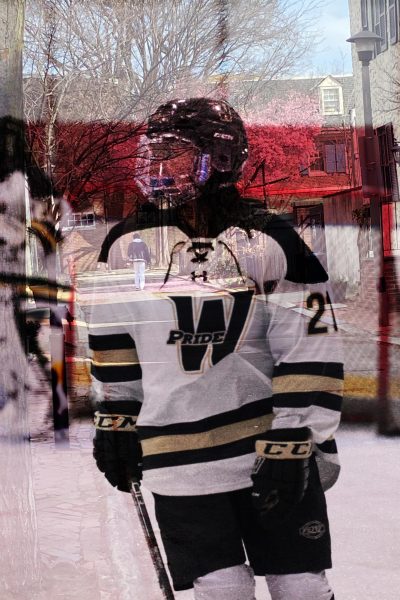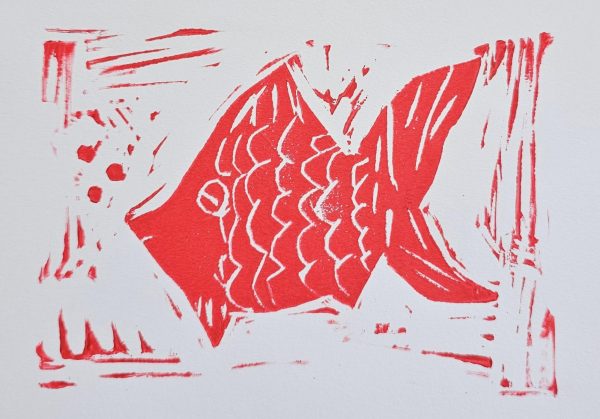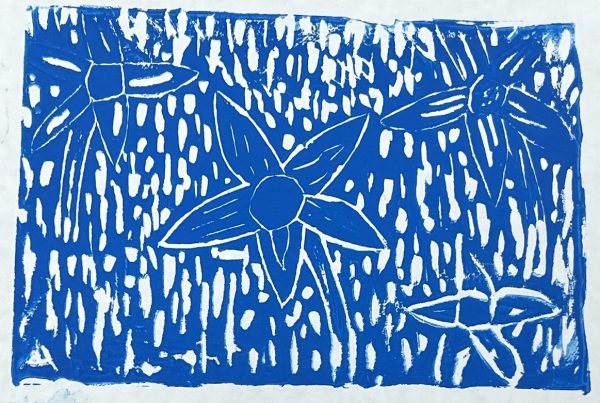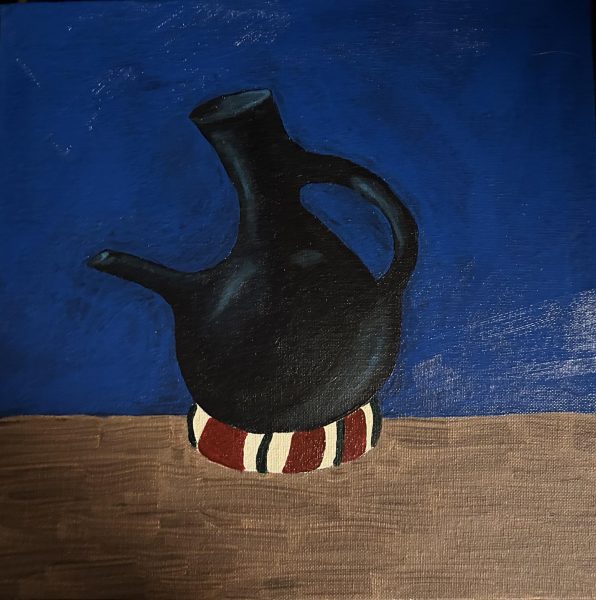Thalassophobia
The Wildezine Literary Magazine 2023
I’ve had a mixed relationship with the word “love.” Love is a complicated little word, simplified and categorized into recognizable and ideally universal definitions. However, dictionaries can’t ever be truly accurate to the meaning of a word. There’s an ontological relationship that dictionaries have with language, their goal being to capture the ever-evolving descriptive meaning of a word. The usage of a word, however, is never universal enough for a few definitions to tell a full story. “Love” makes this inconsistency unavoidably painful, few words being as commonly disputed as “love” is. If love’s nature isn’t romantic or sexual, it’s a hallucinatory sin.
I’m someone who doesn’t apply to most dictionary definitions of “love.” I don’t experience the type of love which many consider to be fundamental to being alive: romantic attraction. Not because of a lack of effort, mind you, because I’ve tried to convince myself otherwise. I’ve tried to redesign myself to feel attraction because that’s what I’m supposed to experience. I’d strategize the best crushes for me to have, and when I realized that tactic didn’t evoke any emotional changes, figured it was most intelligent to only develop a crush after I graduated from school. I didn’t try to understand my feelings, my thoughts all being substitutional excuses for why I wasn’t feeling the love I assumed I was supposed to experience.
My version of love is similar to the ocean. The ocean is fascinating to me. While I don’t sail every sea, the ecosystems I explore are rich with life that I could never fully appreciate from a snapshot. My dad shared with me how he wanted his ashes scattered in the ocean, to forever be a part of that very beauty, a memory staying alive through gentle waves. Yet the ocean is an incomprehensible nightmare, too big and too deep to grasp the vastness of the unknown. I’ll sink into the water, the pressure building against my body, suffocating me as (my) draining oxygen screams at me to escape to safety. The ocean–love–is a morbidly fascinating struggle I’m hopelessly addicted to.
Love shown to me in the past would often be paired with that very struggle. There was always something wrong with me, something to be fixed. The terms and conditions of my friendships were written based on what traits got defined as polluted. My errors were critiqued and mocked until I hid them away; those imperfect fundamentals would be ignored because the man my friends claimed to love wasn’t packaged with mistakes. Love corrupted into a justification for reconstruction, a promise that with a friend’s love guiding them, I would be reshaped into the version of me that existed in someone else’s daydreams. These past friends were case studies proving that the only definitions that are allowed to be broken are those which are used by hypocrites that believe only they should hold the pen which authors “love.”
The ocean only felt deeper and darker the more perspective I gained. The more times I dived into the cold water, the more I’d notice decaying ruins of sunken ships and divers in a restless comatose. The conditions I fought against intensified as I weakened, and I began to fear spending more time in love’s blue depths. I’d gaze upon the sun as it sank into the sea, its reflection which danced on the waves disappearing into the horizon. My instinctual fascination for the sea haunted me. The ocean, alive yet inanimate, is immune to the paralysis of fear, while my mortality began to succumb to the depths of thalassophobia.
The tides are what makes my aromanticism so ironically beautiful. Being aromantic is the first time I discovered something I could love about myself. I began to excavate my own meaning of love, my motivation brought on by the lack of it. The piles of dictionaries collecting dust within my library liberated me from the wisdom they claimed to behold. I would eventually replace their written lies with cartographer’s tools and maps of all the hues of the deep blue.
Whether it was the allure of a siren or a longing for company compelling me, I felt myself being drawn back to platonic seas. Despite the war of bad memories, following a song of hope across the ocean led me to meeting my closest friends. At first I was apprehensive, anxiety betraying my affection. Yet my timid fear was never mocked, never reprimanded, because my friends didn’t want to. This time, love didn’t come with a contract defining any conditions, because everything that makes me who I am is deserving of love. When I’d try to swim into the ocean, when the panic and pressure I’d undergo would overwhelm me, by my side, helping me through the water, were my friends.
The emotions I feel now would never manifest without a willingness to open up to new ideas of what love can be. There’s a feeling of liberation that comes with the relaxation of tense, strict ideas, of letting abstract waves flow with you, your presence warming up the chilled waters. The same fear that controlled me, and still taunts me, brought with it the gift of wisdom. The value of my friendships resonates within me more powerfully because I understand what life feels like without people who appreciate me. The ocean never stopped being terrifying, the conditions of the water never were altered, it was I who adapted, who got better at navigating the currents, who was no longer alone in the deep.
The dictionary that is often treated as gospel will occasionally emerge in the water during my voyages. The tides have mostly destroyed it, the ink washed away, pages torn and unreadable, and the cover disintegrating into the waves. Every time my eyes lay upon it, my body feels light from the observation that I’m no longer bound to trying to match a partial summary of what love can be. After all, a dictionary can’t capture every definition that love can have, because love is to such a scale and such a variability that language could never hope to describe it. It is up to each person to decipher their own definition, to find within themselves what love may or may not mean, and to take pride in their writings and discoveries. Whether that means being a sailor of vast blue oceans or settling on a beautiful beach watching from afar with a thesaurus in your hands.





